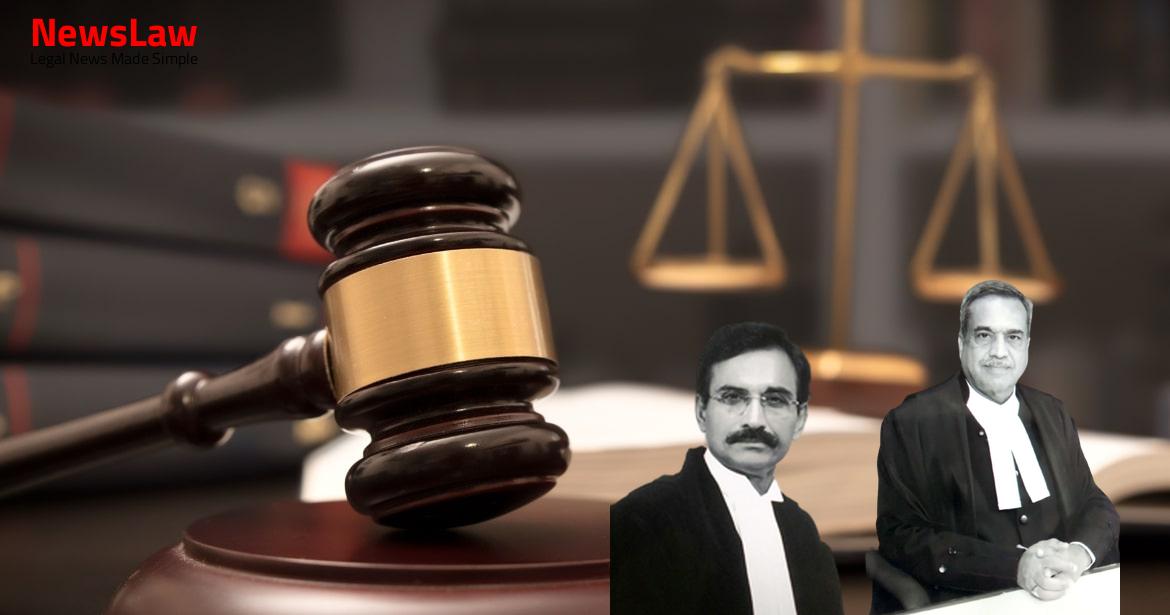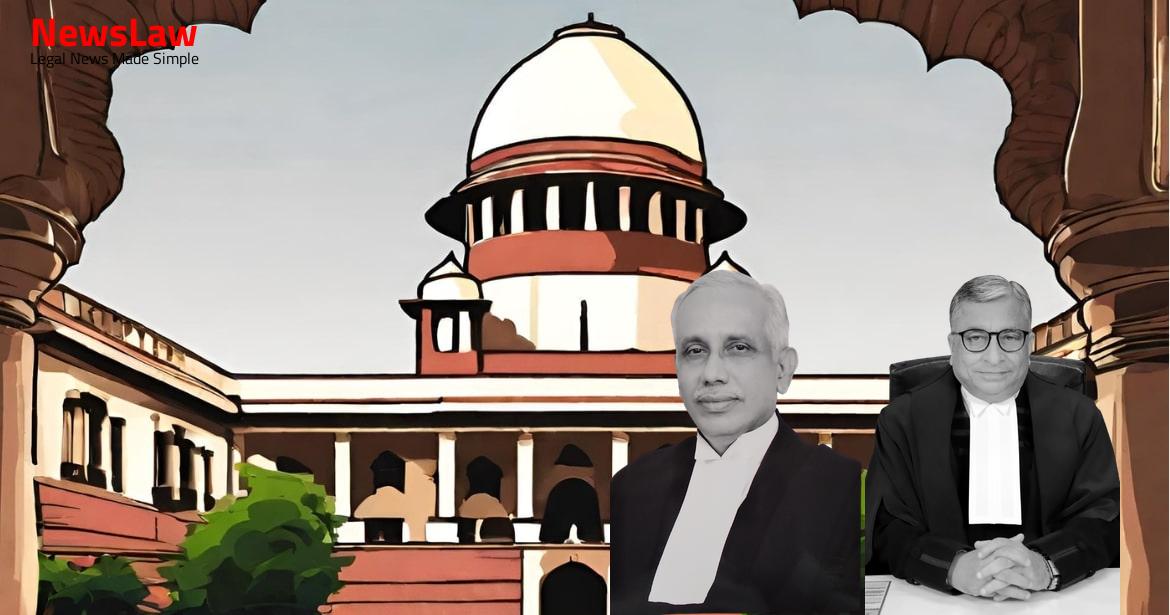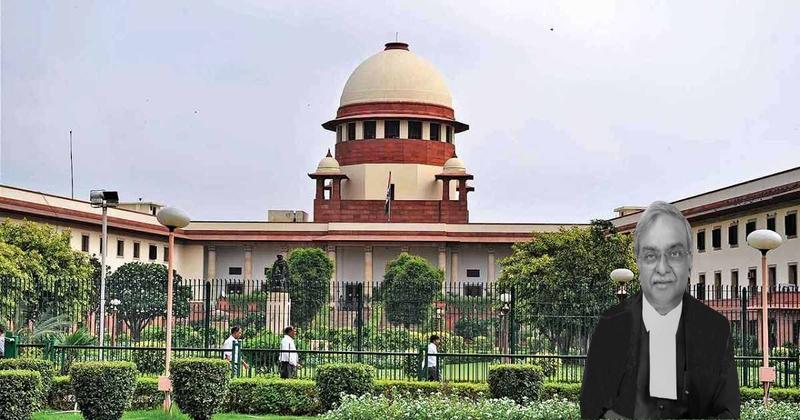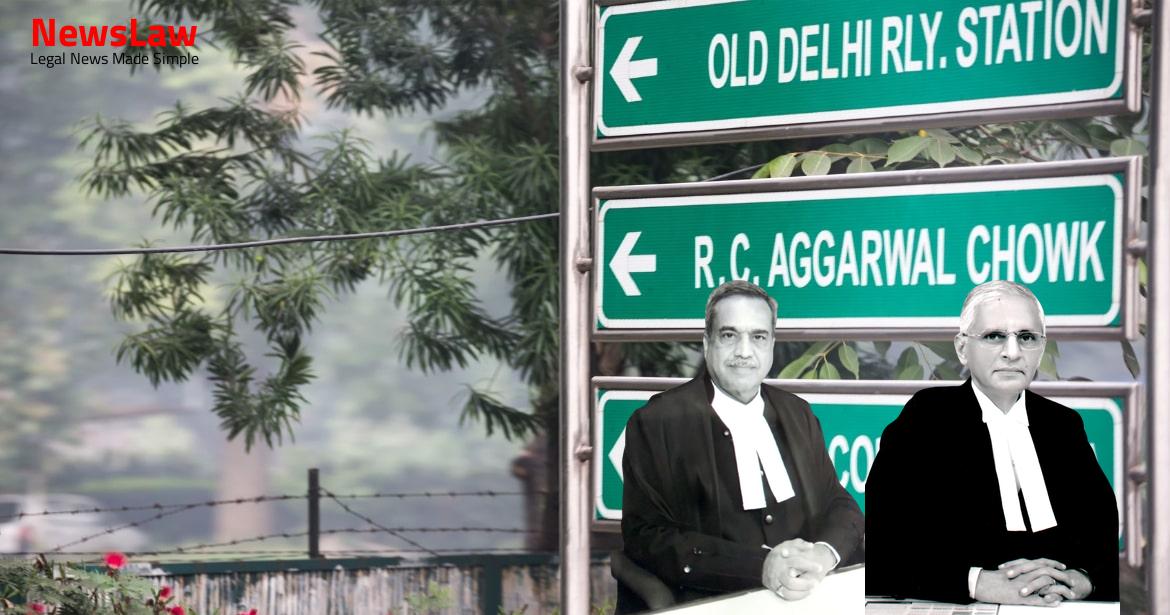In a significant legal case, the Supreme Court of India deliberated on the application of Section 18 of the Act in terminations following post abolition. The case involved the Management and the Non-Governmental Educational Institutions Tribunal, highlighting the nuances of employee removal in such scenarios. The judgment offers insights into the interpretation of the law and its implications on workforce management in educational institutions.
Facts
- The Management argued that the termination was due to the abolition of posts, making Section 18 of the Act inapplicable.
- Employees were engaged as Sweeper, Mechanic, and Waterman respectively.
- The private respondent was engaged as a Lab Assistant/Lab Boy on a temporary basis.
- The institution decided to pay six months’ salary to the terminated employees.
- The High Court upheld the decision of the Non-Government Educational Institutions Tribunal, leading to the current appeals.
- The Commissioner of College Education clarified that government approval was not needed for the removal of the employees as their posts were not aided.
- The Managing Committee resolved to abolish certain posts due to heavy losses, resulting in the termination of employees.
- Appellant filed writ petitions challenging the order passed by the Tribunal and they were dismissed by the Single Judge of the High Court.
- Failure to obtain written prior consent/approval of the Director of Education before removing the employees was considered mandatory by the Single Judge.
- The communication dated 25.01.2005 of the Commissioner, College Education, Rajasthan was not considered as part of the record before the Tribunal.
- The appellant appealed the Single Judge’s decision via D.B. Special Appeals before the Division Bench of the High Court.
- The Division Bench dismissed the appeals and upheld the Single Judge’s decision.
- The Tribunal had set aside the removal orders of the employees and directed their reinstatement due to lack of prior approval from the Director of Education as mandated by Section 18 of the Act.
Also Read: Supreme Court Ruling on Dowry Harassment and Suicide Case
Issue
- The main issue revolves around the application of Section 18 of the Act in cases of removal due to the abolition of posts.
- The specific concern is when employees are working on a temporary basis and the posts they occupy are not approved or sanctioned by the Education Department.
- The appointments to these posts were not approved, and the posts were not aided.
- The question raised is whether the abolition of such posts can be considered valid under Section 18 of the Act.
- The relevant provisions under Section 18 of the Act and Rule 39 of the 1993 Rules are crucial for the analysis of this issue.
Also Read: Case of Technical Equipment Officer Appointment Criteria Dispute
Arguments
- The appellant management argues that the Division Bench of the High Court did not consider relevant judicial decisions and contentions raised from the beginning regarding the inapplicability of Section 18 of the Act.
- They contend that the Management paid six months’ salary to the employees as a precautionary measure, which should not be held against them in applying Section 18 of the Act.
- The decision to abolish temporary posts was a conscious one due to financial losses, and the courts erred in questioning this decision.
- The abolishment of posts did not warrant prior approval under Section 18 of the Act or Rule 39 of the 1993 Rules.
- The High Court failed to consider communications from the State Government supporting the Management’s actions and the non-requirement of Education Department consent in certain cases of post abolishment.
- The termination of employees was a consequence of post abolition and not penal action, thus Section 18 of the Act should not apply.
- Various errors were highlighted in the judgments of the Single Judge and Division Bench which led to the dismissal of the appeals.
- High Court did not commit any error in holding the removal/termination was hit by Section 18 of the Act.
- Both the Tribunal and the Single Judge found the abolition of posts to be bad in law.
- Since the abolition of posts was deemed unlawful, the necessity of prior approval/consent of the Director/State authorities was irrelevant.
Also Read: Supreme Court Judgement on Transfer of Mining Environmental Clearances
Analysis
- The learned Single Judge of the High Court held the abolition of posts as bad in law, citing the financial stability of the institution and the lack of necessity for seeking government approval for removal.
- Even the State Government communicated that approval was not needed for the removal of non-aided post employees.
- The Division Bench did not provide reasons for applying Section 18 of the Act in post abolition cases, overlooking the State’s communication on not requiring government approval.
- The decision by the Managing Committee to abolish the posts was not contested, and the employees were reinstated by the Tribunal and Single Judge based on lack of government approval and post abolition legality.
- Conscious decisions were made by the Management to abolish temporary posts due to financial constraints and losses.
- The Courts erred in invoking Section 18 of the Act as all employees worked on a temporary basis and their removal was due to post abolition, not personal reasons.
- No malice or arbitrariness was found in the Management’s decision to abolish the posts.
- The High Court did not consider the financial position comprehensively before deeming the post abolition unnecessary.
- The Division Bench did not address a relevant cited decision on the matter.
- Overall, the High Court and Tribunal failed to prove malevolence or hidden motives behind the post abolition, hence ruling it bad in law was unjustified.
- Employees appointed temporarily for six months can have their services terminated by the management with at least one month’s notice or salary in lieu thereof.
- Temporary employees wishing to resign must give at least one month’s notice or deposit/surrender one month’s salary in advance.
- Permanent employees can only be removed or dismissed on grounds of insubordination, inefficiency, neglect of duty, misconduct, or any other grounds making them unsuitable for further service.
- Procedures for removal or dismissal of permanent employees include a preliminary inquiry, issuing of a charge sheet with allegations, and the opportunity for the employee to respond.
- If a detailed inquiry is deemed necessary, a three-member committee including a nominee of the Director of Education will be constituted by the managing committee.
- The employee must be given a reasonable opportunity to be heard, provide a written statement, and lead evidence.
- After the detailed inquiry, the committee will submit its report to the management committee.
- If the management committee decides on removal or dismissal, the employee must be provided with the report, notice of the penalty, and an opportunity to make representations.
- Records of the inquiry, notice, and employee’s representations must be forwarded to the Director of Education or an authorized officer for approval.
- Upon approval, the management committee can issue the order of removal or dismissal and provide a copy to the employee and the Director of Education.
- Exceptions to the process include cases of employee conviction, impracticality or expedience in providing an opportunity to show cause, and cases where unanimous agreement deems the employee’s services should be terminated with consent from the Director of Education.
- Section 18 of the Act and Rule 39 of the 1993 Rules do not apply in cases of removal of an employee due to the abolition of posts.
- If the post to which the employee is working was not aided and the appointment was not approved by the Education Department, Section 18 of the Act and Rule 39 would not be applicable.
- In the case of Bhikha Ram Sharma, it was observed that in the event of termination of service due to the abolition of a post, conducting an enquiry under the Rules is not necessary.
- Rule 39 of the 1993 Rules applies only when an employee is removed for specific grounds such as insubordination, inefficiency, neglect of duty, misconduct, etc.
- Procedure under Rule 39 needs to be followed only in cases mentioned above.
- Rule 39 allows for termination of an employee with six months notice or salary in lieu thereof if the Managing Committee unanimously agrees that the employee’s service cannot be continued without prejudice to the institution’s interest.
- Rule 39 does not apply when an employee is removed due to abolition of the post.
- Depositing six months’ salary does not automatically trigger Rule 39 if the reasons for removal do not fall under its purview.
- Appeals allowed, previous orders directing reinstatement quashed and set aside.
Decision
- The court found that the RPC had engaged in unethical behavior
- The RPC was found to have violated the rules and regulations governing their profession
- Sanctions were imposed on the RPC for their misconduct
Case Title: KHETRI VIKAS SAMITI Vs. DIRECTOR COLLEGE EDUCATION, GOVT OF RAJASTHAN
Case Number: C.A. No.-004806-004806 / 2019



